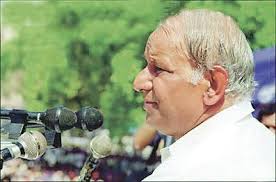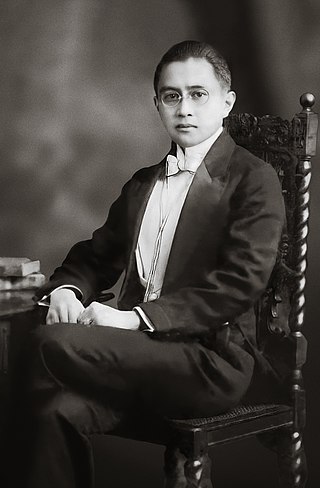Related Research Articles

Berea College is a private liberal arts work college in Berea, Kentucky. Founded in 1855, Berea College was the first college in the Southern United States to be coeducational and racially integrated. It was integrated from as early as 1866 until 1904, and again after 1954.
The Ford Foundation is an American private foundation with the stated goal of advancing human welfare. Created in 1936 by Edsel Ford and his father Henry Ford, it was originally funded by a $25,000 gift from Edsel Ford. By 1947, after the death of the two founders, the foundation owned 90% of the non-voting shares of the Ford Motor Company. Between 1955 and 1974, the foundation sold its Ford Motor Company holdings and now plays no role in the automobile company.

The Royal Astronomical Society (RAS) is a learned society and charity that encourages and promotes the study of astronomy, solar-system science, geophysics and closely related branches of science. Its headquarters are in Burlington House, on Piccadilly in London. The society has over 4,000 members, known as fellows, most of whom are professional researchers or postgraduate students. Around a quarter of Fellows live outside the UK.

A learned society is an organization that exists to promote an academic discipline, profession, or a group of related disciplines such as the arts and sciences. Membership may be open to all, may require possession of some qualification, or may be an honour conferred by election.

The Communist Party of India (CPI) is the oldest communist party in India. The CPI was founded in modern-day Kanpur on 26 December 1925.

The Bahujan Samaj Party is a political party in India that was formed to represent Bahujans, referring to Scheduled Castes, Scheduled Tribes, and Other Backward Classes (OBC), along with religious minorities. According to Kanshi Ram, when he founded the party in 1984, the Bahujans comprised 85 percent of India's population, but were divided into 6,000 different castes. The party claims to be inspired by the philosophy of B. R. Ambedkar, Jyotiba Phule, Narayana Guru, Chhatrapati Shahuji Maharaj, and Gautama Buddha.

The Bulgarian Socialist Party (BSP), also known as The Centenarian, is a centre-left, social democratic political party in Bulgaria. The BSP is a member of the Socialist International, Party of European Socialists, and Progressive Alliance. Although founded in 1990 in its modern form, it traces its political heritage back to the founding of the BRSDP in 1891. It is also Bulgaria's largest party by membership numbers.
The American Library Association (ALA) is a nonprofit organization based in the United States that promotes libraries and library education internationally. It is the oldest and largest library association in the world.

Edwin Grant Conklin was an American biologist and zoologist.

The Bangko Sentral ng Pilipinas is the central bank of the Philippines. It was established on January 3, 1949, and then re-established on July 3, 1993 pursuant to the provision of Republic Act 7653 or the New Central Bank Act of 1993 as amended by Republic Act 11211 or the New Central Bank Act of 2019. The principal author was Senator Franklin Drilon. It was signed by President Rodrigo Duterte.

Lingnan University (Lingnan) is located in Tuen Mun, New Territories, Hong Kong. It intertwines research with teaching.

Kanshi Ram, also known as Bahujan Nayak or Manyavar, Sahab Kanshiram was an Indian politician and social reformer who worked for the upliftment and political mobilisation of the Bahujans, the backward or lower caste people including untouchable groups at the bottom of the caste system in India. Towards this end, Kanshi Ram founded Dalit Shoshit Samaj Sangharsh Samiti (DS-4), the All India Backwards (SC/ST/OBC) and Minorities Communities Employees' Federation (BAMCEF) in 1971 and the Bahujan Samaj Party (BSP) in 1984. He ceded leadership of the BSP to his protégé Mayawati who has served four terms as Chief Minister of Uttar Pradesh.
The American Council of Learned Societies (ACLS) is a private, nonprofit federation of 75 scholarly organizations in the humanities and related social sciences founded in 1919. It is best known for its fellowship competitions which provide a range of opportunities for scholars in the humanities and related social sciences at all career stages, from graduate students to distinguished professors to independent scholars, working with a number of disciplines and methodologies in the U.S. and abroad.

BSP – United Left, formerly BSP for Bulgaria until 2024, is a centre-left electoral alliance in Bulgaria led by the Bulgarian Socialist Party. A big tent of the democratic socialist left, it is a coalition of communist, left-wing nationalist, green, and social-democratic parties. On European Union politics, the majority of its members hold pro-European views, while a minority hold more Eurosceptic stances. The coalition has gone by multiple names since its foundation.
The National Council for the Social Studies (NCSS) is a private, non-profit association based in Silver Spring, Maryland, that provides leadership, support, and advocacy for social studies education.

Don Gabriel Amando Daza, KGCR, KC*SS was the first Filipino electrical engineer and one of the charter members of the Boy Scouts of the Philippines (BSP). He co-founded the Philippine Long Distance Telephone Company (PLDT), Philippine Telegraph and Telephone Co. (PT&T), Philippine Electric Manufacturing Company (PEMCO), Phelps Dodge Philippines. He was the supervising engineer and assistant general manager of Visayan Electric Company (VECO) and led its expansion out of Cebu City. President and chief scout of the BSP in 1961–68. In 1945, President Osmeña appointed Daza to be a member of the board of directors of the Manila Railroad Company and the Philippine Charity Sweepstakes Office. In 1950, he was vice-chairman of the National Power Corporation and on the board of directors of the Manila Hotel Company. In 1951, Daza was appointed by President Quirino as a founding member of the board of directors of the National Shipyard and Steel Corporation. President and director of the National Economic Protection Agency (NEPA) in 1956.

Chamar is a community classified as a Scheduled Caste under modern India's system of affirmative action that originated from the group of trade persons who were involved in leather tanning and shoemaking. They are found throughout the Indian subcontinent, mainly in the northern states of India and in Pakistan and Nepal.

The Society of Radiographers (SoR) is a professional body and trade union that represents more than 90 percent of the diagnostic and therapeutic radiographers in the United Kingdom. The College of Radiographers (CoR) is a charitable subsidiary of the Society, they are collectively known as the Society and College of Radiographers (SCoR).

The Boerestaat Party is a Boer nationalist South African political party founded on 30 September 1986 by Robert van Tonder. It was never officially registered as a political party because it was unable to rally 500 persons under one roof, a requirement under South African electoral law for official political party status. It was never represented in the South African Parliament, neither in the apartheid era nor after democratisation. In 1989, it joined the Afrikaner Weerstandsbeweging (AWB) in declaring support for Jaap Marais, the leader of the Herstigte Nasionale Party and has worked with the HNP on occasion since. The party was a charter member of the Afrikaner Volksfront coalition group. It has also operated with the paramilitary group, the Boere Weerstandsbeweging led by Andrew Ford.
Repalle Shiva Praveen Kumar is a former officer of Indian Police Service who served as the secretary of Telangana Social Welfare Residential Educational Institutions Society and Telangana Tribal Welfare Residential Educational Institutions Society.
References
- ↑ "Member Societies Archive". Archived from the original on 16 March 2015. Retrieved 18 November 2014.
- ↑ "BSPS Conferences page, including 50th anniversary event in 2023" . Retrieved 14 November 2024.
- ↑ "BSPS awards and grants" . Retrieved 14 November 2024.